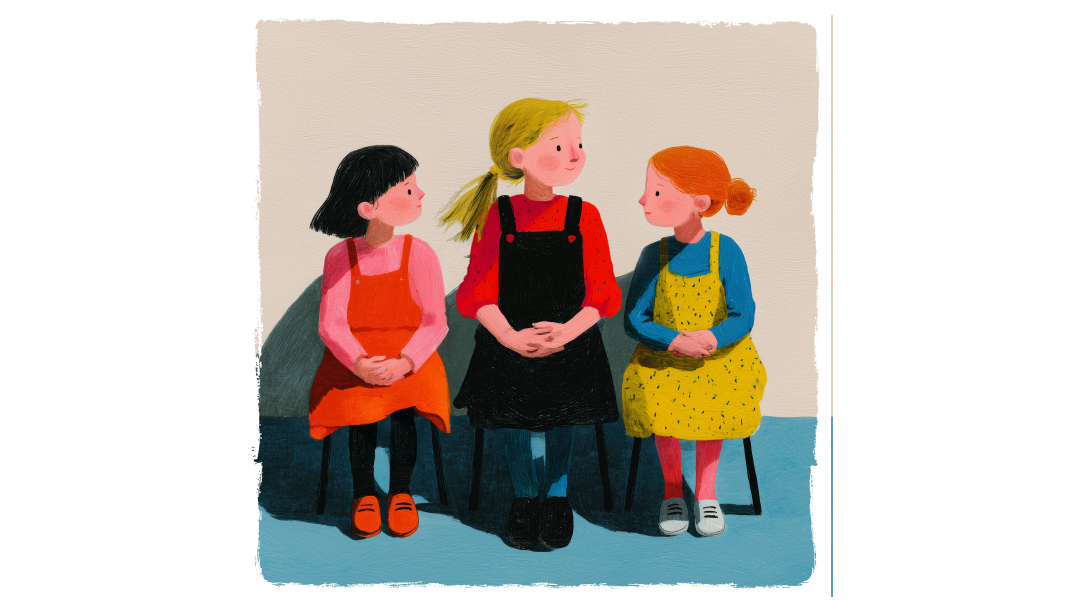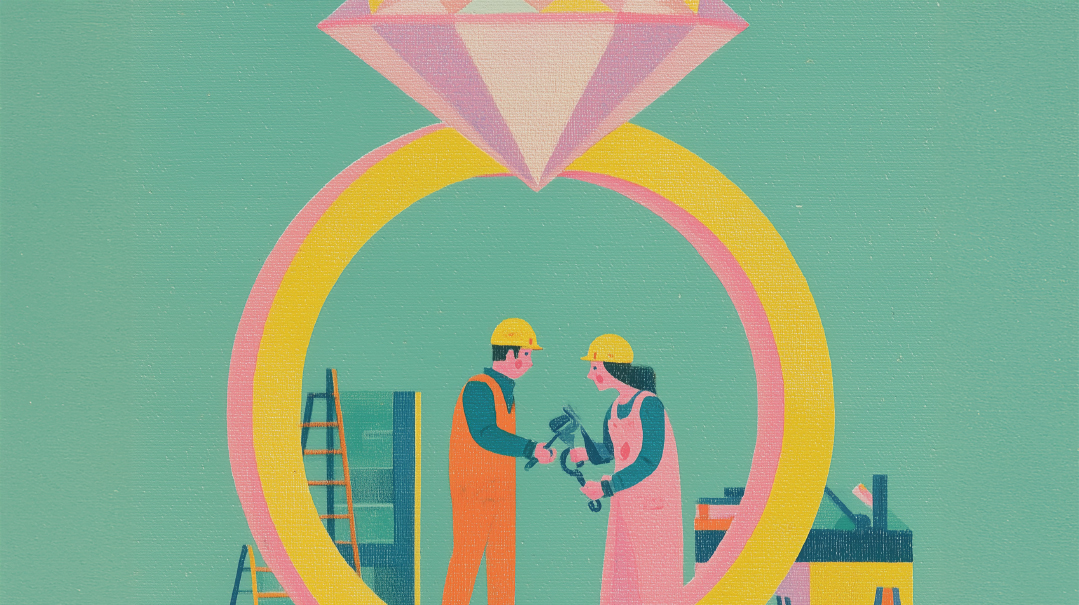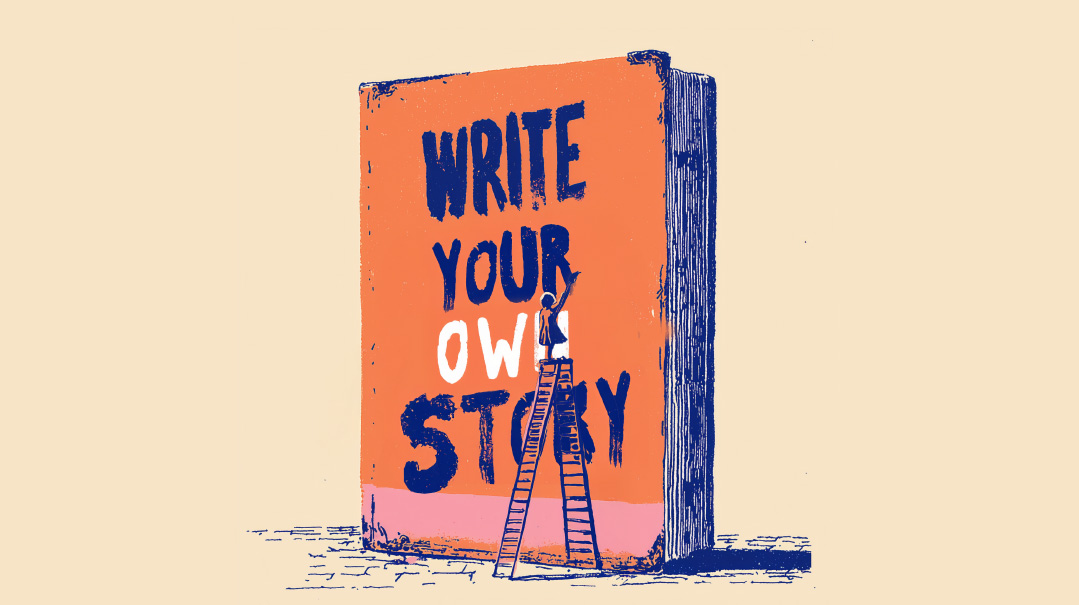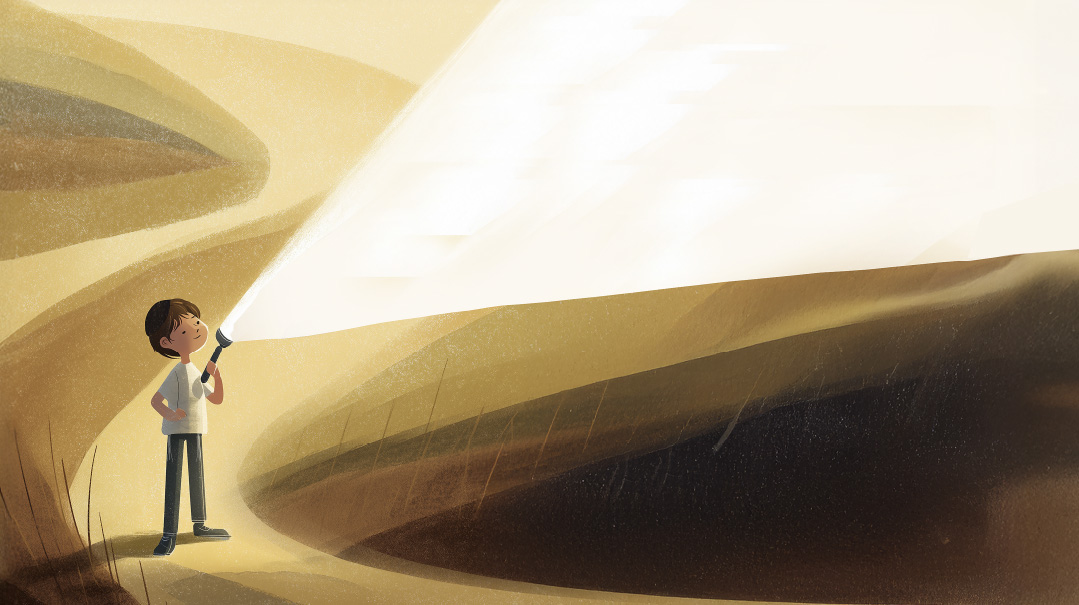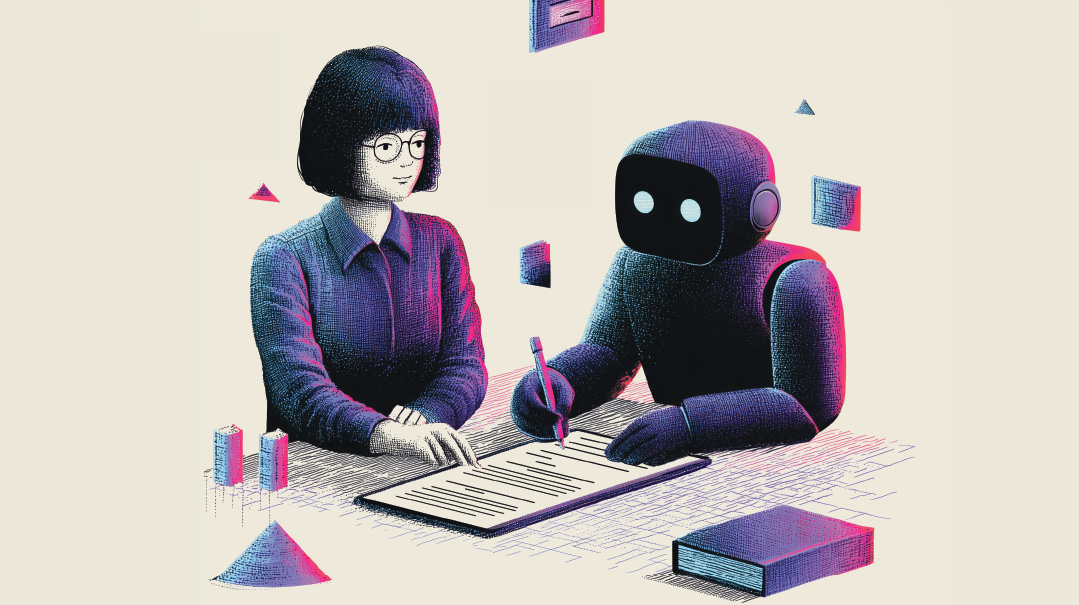Now That’s Giving!
| August 22, 2023Five women share their or their family’s experience donating a kidney
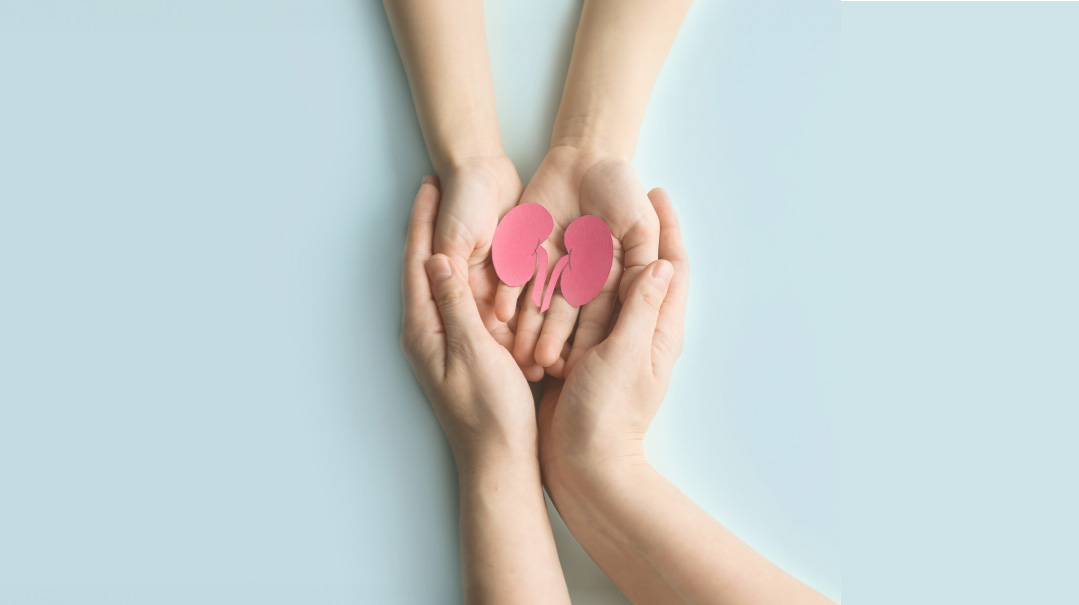
Rebbetzin Chana Sytner
wife of donor Rabbi Ari Sytner of Bergenfield, New Jersey
WE
were serving as the Rav and Rebbetzin in Charleston, South Carolina, when Ari decided to research fascinating topics that would draw a crowd for Shavuos night learning. He decided to speak about contemporary medical ethics, focusing on organ donation and the question of whether donating an organ was permissible, forbidden, or encouraged. Ari shared with the community what a great mitzvah it was to donate a kidney. But returning home, he felt like a hypocrite, encouraging his community to do something he would never do.
Ari wrestled with the question of donating his kidney and invited me out for coffee to tell me he was interested in becoming a kidney donor. I think he expected me to yell — which is probably why he invited me to discuss it in a public place.
Much to Ari’s surprise, I was actually receptive. He was the one on the fence seeking my guidance. I reassured Ari that he didn’t need to make a final decision, as there were many steps between being interested in donating and actually undergoing the surgery. I suggested we take it step by step, and if it was bashert and he ended up being a match for someone, we could make the decision to cross the finish line at that time.
Ari reached out to Chaya Lipschutz of Kidney Mitzvah, and Matnat Chaim in Israel. With their guidance, he completed the testing process at Montefiore Hospital in New York. Simultaneously, we spoke to our morei derech, sought their input, and received brachos and spiritual support. I put in my hishtadlus by speaking to our health and life insurance companies to make sure our family would be protected in case chas v’shalom anything bad happened.
Ari was matched with an Israeli woman in her forties: Ronit, a single mother of three children, who had watched her own mother die of kidney disease, and was now in decline from the same disease herself. Ronit had been searching for a kidney for years, reaching out to numerous organizations which declined her application because she wasn’t religious. She was losing hope, as time was running out for her.
Before committing to undergoing the surgery, we discussed the process with our children. Our oldest children were only 11 and seven at the time. When Ari first spoke to them about the possibility of donating a kidney, they didn’t want him to do it, for fear he would die. But when Ari explained that he would be saving the life of a single mother, they had a change of heart and said, “Yes, you should do it! Because if you die, we’ll be sad, but we still have Mommy. But if Ronit dies without a kidney, her children will be orphans.” The fact that my young children were able to appreciate the value of saving another person’s life was inspiring.
When our families learned of our decision, they were worried. We told them of our belief that a person leaves this world at a pre-determined time, and if that day was Ari’s time to die, it would happen — whether he had the surgery or not. We reassured them that we’d done our due diligence medically, financially, and halachically and were confident with our decision.
The transplant was scheduled for the first day of Chanukah in 2011. It was hard to believe that after so much research and preparation the day had arrived. I’d faced the idea with strength and stoicism until Ari was wheeled into surgery, at which point the adrenaline wore off, and I burst out crying. Ronit was in the pre-op room beside me, behind a curtain, crying tears of joy as she waited to be taken in for her surgery. We hugged, and Ronit asked if she could have Ari’s Hebrew name to daven for him, and I asked for her name in exchange.
Baruch Hashem, the surgery and recovery were smooth and successful. I attribute this to the fact that Ari performed the amazing mitzvos of v’ahavta l’reiacha kamocha and hatzalas nefashos with his donation. In fact, Ari told me that the final words he spoke as he was falling asleep in the operating room were, “Hineni muchan umezuman l’kayeim mitzvas asei shel v’ahavta l’reiacha kamocha.”
We’ve been zocheh to see the amazing impact of Ari’s donation: Ronit’s son, who had put on tefillin only once for his bar mitzvah, started donning tefillin more regularly in gratitude to Hashem. Ronit texts or emails Ari almost every Friday to wish him a good Shabbos, and lets him know that she prays for our family every Friday night as she lights Shabbos candles.
When Ronit’s oldest daughter got engaged, she insisted on bringing Ari to the wedding in Israel, saying, “You have to be here, Ari, because I wouldn’t be here without you.”
At the wedding, strangers approached Ari, hugged him, and thanked him for his life-saving kindness. When he was called up to say a brachah under the chuppah, the entire room rose to its feet and clapped. These experiences really highlight the ma’amar, “Kol hamatzil nefesh achas m’Yisrael k’ilu hitzil olam u’mlo’o.”
Abby Leichman
wife of donor Steve Leichman of Maaleh Adumim, Israel
IT was May of 2012 when my husband, Steve, walked into my home office and asked, “What do you think? Should I look into it?” and showed me an email seeking a kidney donor of his blood type.
I didn’t have any hesitations.
When Steve found out that the intended recipient was about to turn 70, he thought maybe he’d wait until someone younger, who had a bigger chance of living a longer life, came up on the list. I didn’t look at it like that, and I told him, “If Hashem put this opportunity in front of you, you should go for it.”
We soon got to know his intended recipient and realized she was an amazing woman. She grew up in Brooklyn, so we shared a language. She was a hero of the protest movement for Soviet Jewry, helping Refuseniks seeking to leave the Soviet Union in the 1970s and 80s, and continues to aid former Refuseniks to this day.
There was a six-month wait between beginning the testing process and undergoing the surgery. It was a little tense, with Steve having to take off work to go for testing, and we and Steve’s recipient eager to go ahead with it already.
His recipient had had other donors come forward who were eliminated after testing, so she was, understandably, a nervous wreck while waiting to see if it would actually happen. At that time, my husband was the only suitable candidate.
I was worried about Steve’s physical recovery, possible infection, and other side effects, but baruch Hashem, it all worked out fine. Although donating a kidney is a big deal, he healed quickly and soon resumed normal activities.
The recipient became like a family member, a blessing in our lives. We speak to her around once a week, and get together twice a year, on the anniversary of the operation in December, and in June when she and Steve both celebrate their birthdays. It’s not that well known, but the Israeli government actually compensates kidney donors for days lost at work and other expenses, as well as sends a gift of a vacation voucher, because by stepping forward, you’re saving them the expense of dialysis. But besides that, our recipient wanted to show her appreciation with gifts. At first, we accepted, but after a while, Steve and I asked her to donate to charity in his name instead.
About two years after the transplant, my husband went into early retirement. However, one of his recipient’s children introduced Steve to a startup that could use his expertise. Baruch Hashem, this sideline has developed and grown into an amazing niche. We experienced a shower of blessing through his doing this mitzvah.
The interesting thing is that it hasn’t inspired me to give a kidney. I’ve thought about it a lot, but when push came to shove, I felt I wasn’t ready to be hospitalized and undergo surgery. At one point I thought of donating despite myself, but my husband says that if I have hesitations, I’m obviously not the right candidate. I’m not proud of it, but that is where I am.
Steve was willing to tell close family about his act of kindness, but adamant about not telling other people. He didn’t want it to seem like he was boasting, and he didn’t want to be acclaimed as a hero. After a year, he slowly started to tell our closest friends.
Then Matnat Chaim got in touch with him to ask him to mentor other donors. They made it clear that going public about donating encourages other people to donate, and my husband changed his tune completely. He still doesn’t like the “hero” reaction, but he speaks about it openly in order to encourage other people to donate. He’s even been in the local paper. At least three people have decided to donate kidneys due to Steve’s example.
While I always knew that Steve was a great guy, this experience has only strengthened my appreciation and respect for the incredible man I married.
Shellie Grafstein
Beit Shemesh, Israel
I
was at a shul luncheon in my hometown of Toronto, seated at a table of total strangers and planning a quick getaway, when I was introduced to a woman as, “This is my friend so- and-so, she donated her kidney to a stranger in New York last year.” I’d never heard of something so wonderful and was totally flabbergasted — giving a body part to someone you don’t know. Now that was giving!
I asked my rav what he thought of the idea, and he told me I was crazy. I had a four-month-old baby and was moving to Israel for a year in two months’ time. I filed the idea away in my mind and went about my life.
A number of years later, I read on Aish.com about Rebbetzin Lori Palatnik giving her kidney to a stranger. I’d been friends with Lori when she was a rebbetzin in Toronto, and her act reignited my desire to donate my kidney, so again, I asked my rav for his opinion. I had made aliyah a few years before and it had been heart-wrenching for me and my family. My marriage was also falling apart. My rav said unequivocally, “No! It’s not the right time at all.” I knew he was right.
Then in January 2013, my 20-year-old daughter and I were flipping through a local magazine when we spotted a small ad that said, “53-year-old woman needs a kidney.” I was 53 years old at the time, and I thought, Wouldn’t it be nice to help someone out who is my age? After getting my rav’s blessings, both my daughter and I responded to the ad. My daughter was immediately rejected, as in Israel, women aren’t allowed to donate to strangers unless they’ve already had a family. My other four children told me they too would like to be donors when they’re of age, and were unbelievably supportive throughout the entire process.
I was connected with Matnat Chaim, and they helped me through every step of the journey.
The recipient, Ruchy*, had an additional complication. She had extremely high antibodies, which meant that her blood would likely devour other blood. I was told by Matnat Chaim that they expected to test at least 100 people to find a match for her, as this condition makes it more difficult to find a match. Yet I, only the second person tested, was a perfect match.
The testing process is very long and thorough. They want to make sure that the donor is fit emotionally and physically, so they put me through a million tests. I used to joke with my mentor at Matnat Chaim that I was sure the goal was to actually kill me so they could get both kidneys! Even though I was then divorced and raising five children on my own with the incredible help of my brother and sister, I passed the testing process with flying colors.
Finally, almost six months after I began the process, I received a date for the transplant. Ruchy and I had become quite close, as we traveled to many of the appointments together and kept in touch by phone and email. We went to the hospital together. Donors are given the red-carpet treatment, and I was treated as a queen. The staff, all of them, were absolutely phenomenal. When they came to wheel me down to surgery, the doctor wanted to give me a relaxant. I argued with him, assuring him I was totally calm. He won by squirting the product into my mouth as I was protesting!
The surgeon had gifted hands and the surgery was completed in around two hours.
My wonderful sister-in-law and brother-in-law were waiting for me in the recovery room and were with me for hours after the surgery. Ruchy had one of her daughters stay in the room with me overnight. The next morning, I was already able to walk around, and the following day, 40 hours after surgery, I asked to be released from the hospital. My release papers were signed immediately.
I felt really amazing. I didn’t even have to take a single pain killer. But while I was healing remarkably well, Ruchy wasn’t faring the same. My kidney was in shock in her body and not functioning. Her diseased kidneys had been disconnected, so her life depended on my kidney working. I sobbed nonstop for two straight days and sent out requests for people around the world to daven for her. Baruch Hashem, slowly, slowly, my kidney began working and Ruchy was zocheh to be able to marry off a few of her children over the next few years. Unfortunately, after that, her body rejected my kidney, and she had to undergo another transplant.
Chane’le Blau,*
wife of donor Ushi Blau* of Europe
There was a drive in our community to donate a kidney to a community member. My husband casually dropped by the testing center and gave blood, as if it was the simplest errand. He had no inkling that he would be a match.
More practically-minded, I took this far more seriously than he and started to think he might be called on to donate. Sure enough, soon he was called in for more testing. One other person was also a match, so I realized there was a 50 percent chance he would be called on. My husband was still airily dismissive about the whole thing.
Once it was clear that the other candidate wasn’t suitable, I needed to go into all the ins and outs. Normally, a medical procedure happens because it has to happen, but since this was elective, I felt I had to check out all the eventualities. When I read that one person in 3,000 doesn’t survive this surgery, I took it literally and got the askanim involved to sign a document obligating them to help take care of our family if my husband didn’t survive.
I felt that Hashem had arranged this for us, but I still needed to cover all eventualities.
We only told our children, because I didn’t want to be stopped on the street and have people questioning me. The askanim were also discreet. This worked out well, because when Covid came, the surgery was pushed off for months, so at least we didn’t have friends asking, “Nu, when are you doing it?” We had a family secret and kept it.
I wasn’t afraid, but my practical side had me pre-arrange with my husband that the night before the surgery he would show me all documentation and his life insurance policies. But the night before, I was sick with Covid, totally out of it, and I forgot about this arrangement.
The night before the surgery, my husband went to tell his mother and my parents about it. He also left an auto-response on his work email, and that was how people heard the news.
We couldn’t visit my husband because of the Covid policies in the hospital, but he sent us a picture the next day of him with his recipient, and he was smiling, so we knew he was okay. I heard later that he was in a lot of pain immediately afterward and used his morphine up pretty quickly. But he’s adamant that it was pain only, not suffering, because he was so happy that he’d donated. We needed to send kosher food to the hospital for him, but because I had Covid, my husband’s brother took care of it.
The recovery was quick, baruch Hashem. He couldn’t drive for six weeks, but that was it.
We attended the recipient’s seudas hoda’ah, and my husband spoke about what Rabbi Avigdor Miller said. “Why two kidneys? To give one away.” He explained how the kidneys show you how to live your life, giving and sharing.
We go to the other family’s simchahs and feel a special closeness. All in all, it was a privilege Hashem bestowed on us.
Rebbetzin Nechamy Simon
wife of Rabbi Ephraim Simon of Teaneck, New Jersey
WE
used to get emails from Chaya Lipshitz’s Kidney Mitzvah organization. We’d read them, say, “Oish,” and move on. But one day, there was an email about a 12-year-old girl who needed a kidney, and my husband was very moved. Our girls were around that age, and chas v’shalom, if one of them needed it, wouldn’t we want someone to donate? We spoke about it, researched it a little, and the next day, my husband called Chaya and said he was ready to be tested to see if he was a match.
When she responded, “Thank you so much, but we have a match already,” I was actually relieved. Here we had passed the nisayon, agreed to donate, but it didn’t actually have to happen.
My husband, on the other hand, was disappointed. Here was his chance to save a life — and he couldn’t.
“I want to do this,” he told Chaya. “Let me know if another child comes up.”
From then, he was on a mission. I wasn’t completely gung-ho, but I tried to be supportive, focusing on the fact that if it was my child, I’d want someone to step up.
Back then, in 2009, donating a kidney to a total stranger was less heard of in our community. My husband dreamed of donating to a child in need and giving him or her a chance at living to adulthood. But other options came up, and while they weren’t his “dream recipients,” we’re not here to weigh the value of different lives. He agreed — but none of them were his match.
Then another patient came up — a father of ten children. He was a match.
I was really proud, but worried. My husband didn’t want to tell people, he thought we could say we took a few weeks’ vacation. But the fact is that we never take vacations that last for weeks.
I realized that publicizing what he was doing was an opportunity to inspire others, and in the end, my husband announced it from the pulpit, in an inspiring derashah about the concept that Hashem gives us what we need, plus more to share with others. People were wowed; I remember someone stood up and gave him a hug.
His mother, of course, was proud, but very nervous.
Every surgery has a small risk, but life is full of risks, and you have to weigh up the benefits. In this case, saving a life was obviously worth a small risk. I said Tehillim and davened.
The hospitals are careful to avoid having the recipient identify the donor too early on, because that could create pressure if he wants to back out. In our case, though, the recipient was in the hospital when my husband went for testing and immediately guessed who he was and began to thank him.
We keep in touch with the family a few times a year, and go to each other’s simchahs. It’s a special connection.
Doing this mitzvah had an impact on our children. Lecturing about giving to others is one thing, but to set an example of putting yourself out to give to others is another. Our kids grew up with, “My father is a kidney donor” as part of their identity. (Plus, the transplant was fodder for countless school assignments.)
When Chabad.org reported on my husband’s surgery, we got calls from all over the world, and the ripple effect — how many people donated because of his example —is impossible to calculate. The fact that he — a regular person — did it demonstrated to other people that they could do it, too.
Each kidney donation not only saves one person’s life, but changes the lives of their children and loved ones. As for my husband, the mitzvah held such a pull for him that he went on to donate part of his liver, too.
From the Doctor’s Desk
The prevalence of kidney disease in the Jewish community has been a hot topic for some time. Chronic Kidney Disease (CKD) affects more than 10 percent of the general population, varying by country and ethnic group, but Dr. Stuart Greenstein explains that despite some hype to the contrary, there is no increased rate of disease among Jewish people. If any slight variation exists, it can be explained by lifestyle rather than genetics.
“Extra salt in the diet, and the extra weight some of us carry around, contribute to diabetes and high blood pressure, which are risk factors for kidney disease,” he says. “But other populations have this, too. Diabetes and kidney disease can hit anybody, and living a healthy lifestyle by being physically active, not smoking, and watching your diet and salt intake are the best preventative measures.”
Another common form of Kidney Disease, Polycystic Kidney Disease (PKD), is genetic, though its incidence is far less common than CKD. Dr Greenstein notes that in certain Jewish circles, this disease was kept very quiet in order not to harm the family’s shidduch prospects, but nowadays there is generally a more open climate.
Kidney donation is a concept now widespread within the community, with many Jewish people volunteering to donate not just to family members, but to perfect strangers. Dr. Greenstein sees more male donors than women, partly because the Israeli organization Matnat Chaim doesn’t accept donations from women in their childbearing years, which eliminates a lot of female candidates in the suitable age group.
At RENEWAL, which arranges an astounding 18 percent percent of kidney donations in the United States, Dr. Greenstein says he’s seen a high percentage of donors from the chassidish communities, which tend to place an extra emphasis on helping others. “But that might be changing. Now everybody is coming forward, from Modern Orthodox and right across the spectrum.”
Only about half of the hopeful candidates are actually suitable donors. Others come forward for testing, then discover that they have a dormant medical issue — sometimes even undiagnosed kidney disease. In fact, the thorough physical exam given to all volunteers is considered a boon to them, a full workup which can help them keep on top of their own health issues.
What are potential donors worried about? Among younger people, the question they often ask is, “Can I still have more children if I only have one kidney?”
“Yes, you can,” Dr. Greenstein answers.
Another hesitation is the concern that a close family member might need a kidney donation one day. “That’s an ‘if’ question,” the doctor says. “If there is no evidence of kidney disease in your family, why would you think someone would get ill? Of course, if someone is currently ill, you may want to keep it for them.”
Kidney donors can live long lives and don’t face any long-term elevated health risks, although obviously they’ll want to take care of the remaining kidney, not gaining excessive weight or starting to smoke, or going skydiving.
“A lot of patients have become my friends,” Dr. Greenstein reports. He attends weddings and simchahs of both donors and recipients from within the community who consider the transplant surgeon part of their social circle. “One patient was a young man who donated a kidney to his brother. When I went to his wedding a year later, I asked the kallah how she knew this was the right guy. Her answer referred directly to his kidney donation. ‘If this is what he would do for his brother, imagine how he’ll treat me as his wife!’ It had shown her his innate kindness.”
The first patient whom Dr. Greenstein operated on for RENEWAL has now enjoyed a functioning kidney for 17 years. Chaya Lipshitz, who runs a one-woman chesed program called Kidney Mitzvah, has also introduced many to live donation, making dozens of successful kidney matches, and is ready to help non-Jewish patients too. Donations from strangers are now common in the Jewish community, and Dr. Greenstein says that slowly but steadily, he is involved in trying to foster such awareness and attitudes in other ethnic groups.
“Every state has an organ registry for organs which become available from deceased patients, and if you’re at the top of the list, you could be offered such a kidney. Deceased donations are far ahead of living donations in most countries. But the giving in the Jewish circles is extraordinary.”
Dr. Stuart Greenstein has been an academic transplant surgeon for the past 35 years. He is currently a member of the transplant service at Westchester Medical Center, career advisor for surgery at New York Medical College, and delegate to the American Medical Association for the American Society of Transplantation. As medical advisor for RENEWAL, he performed the first transplant for this organization on December 6, 2006, and the 613th transplant for them some years later, among more than 1,000 kidney transplants in total to date. A member of Congregation Keter Torah in Teaneck, New Jersey, Dr. Greenstein is learning his third cycle of Daf Yomi.
Shellie Grafstein contributed material to this article.
(Originally featured in Family First, Issue 857)
Oops! We could not locate your form.

